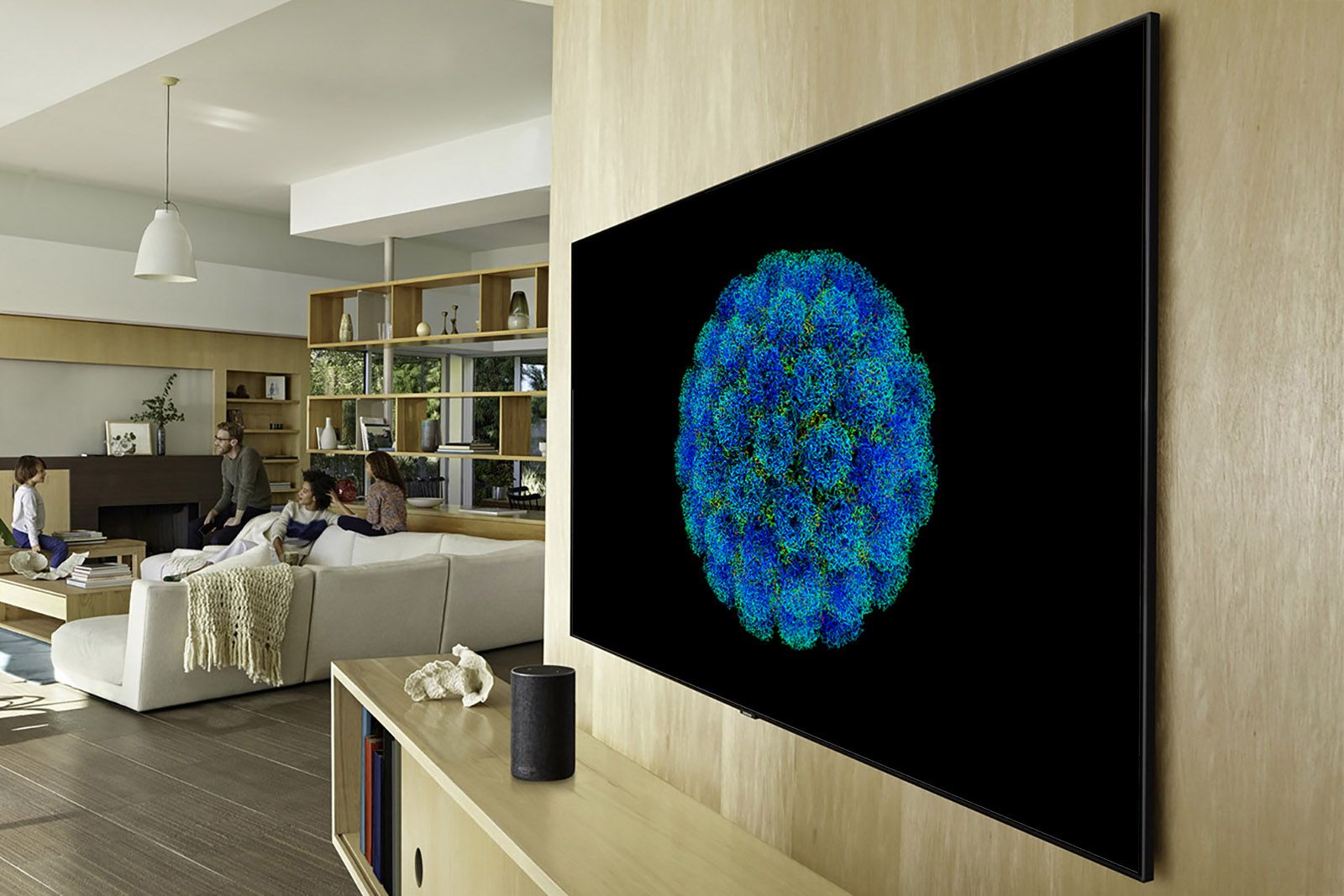In what was considered a strange move, alarming even, Samsung recently posted a "how to" video on its Twitter feed showing people how to scan for viruses on its smart TVs.
It also suggested you should use the security scanning tools "every few weeks" - a seemingly excessive claim.
The company has since removed the tweet and video, but not before sparking a debate on whether TVs can be easily attacked by viruses and malware. And, naturally, the posting elicited responses from worried consumers, with some even suggesting you should never connect your TV to the internet anyway.
That's why we contacted several leading cybersecurity experts, to find out if, like Samsung suggests, your connected TV is vulnerable to hacks and attacks. And, whether you really need to manually scan for viruses as often as the manufacturer claims.
Nothing to fear?
The general belief is that there currently isn't much to worry about. Yet.
Andrew Martin, CEO and founder of global cybersecurity firm DynaRisk, told Pocket-lint that the general public shouldn't be overly concerned with the possibility of their smart TVs being attacked. At least not at present: "Unlike the risks associated with devices such as laptops, computers and increasingly smartphones, viruses on smart TVs are extremely rare - at least for the moment," he explained.
"Similarly, hacks are heavily associated with risk - so if you are a high risk individual working in a high profile industry such as politics, journalism, activism and government, you are more likely to be targeted by hackers."
So, if you aren't in the high risk category and mainly use your set to watch Love Island, you should be fine.
However, Martin does recommend you seek out the instructions for your specific brand of smart TV and perform a virus scan on occasion, just in case. Not every few weeks though, as Samsung recommended: "Consumers should still be cautious and run an AV scan on smart TVs at least once a year," he added.
"Cybercrime is rapidly evolving and, by staying educated on the risks, consumers will be one step ahead when it comes to attacks on smart devices."
Manufacturers need to take steps
Jaavad Malik, a security awareness advocate at KnowBe4, added that it really shouldn't be down to the consumer to ensure their home entertainment equipment is secure and safe. He explained that companies themselves should take responsibility for running security scans and virus checks on connected devices, TVs included: "Getting users to keep their computers and mobile devices fully patched is challenging, expecting users will keep other devices up to date is not practical," he said.
"Instead, manufacturers need to come out with better and easier ways by which their products can be kept up to date and secure for their customers. Additionally, users should be given the option to disable certain functionality if need be."
That includes the ability for a TV to access the internet or certain features of the television. Some TVs have voice assistants built-in, for example, and users might not want "always-on" listening to be activated.
Safety tips
Manufacturer responsibility was also highlighted by Kaspersky's principal security researcher, David Emm, who told us that companies must consider the online security of all devices they sell, not just smart TVs: "It is crucial that retailers and manufacturers secure the products that are now entering our homes - figuratively speaking, it is no good asking people to lock their windows and front door whilst leaving the back door open," he said.
"Manufacturers have a responsibility to implement security by design into smart devices - and the government code of practice will provide positive encouragement to companies. Even though the code of practice isn’t mandatory, it will lay down a framework for companies when developing smart devices - as long as consumers can see at a glance if a product is compliant."
Emm also provided an excellent tip that is potentially more important right now than virus checking your set - and universally relevant regardless of TV brand: "Check that it’s possible to disable functions that you don’t need, to reduce your attack surface, make sure that the product can be updated easily and change any default passwords that come with the device."
Still worried?
So, experts don't believe you have much to worry about right now, regardless of Samsung's over-exuberant tweet. Just ensure you perform regular manufacturer updates and don't use easy-to-guess passwords.
If you are still concerned, you can also check with your television's manual to see if a "security check" feature is possible, as on recent Samsung smart TVs. It is also worth noting that visiting illicit websites (such as illegal streaming sites) or downloading non-approved applications are more likely to open your device to malware or virus attacks than a well-known online location. Avoid them if you don't want to expose yourself to unnecessary risk.
Finally, if you missed the original tweet and own a Samsung television with the virus checking feature, Twitter user Leo Kelion managed to record a video of the instructions before it disappeared. You can watch it below.


